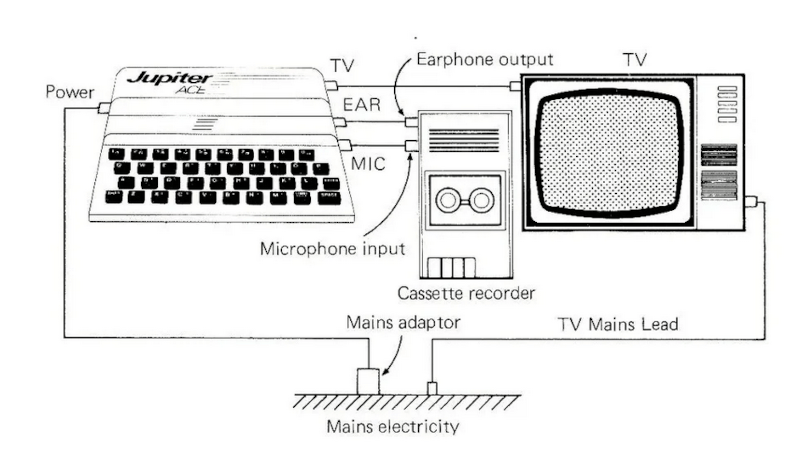It is hard to imagine that it has been more than four decades since two of the original designers of the Sinclair ZX Spectrum broke off to market the Jupiter Ace. [Nemanja Trifunovic] remembers the tiny computer in a recent post, and we always love to recall the old computers that used TVs for screens and audio tape recorders for mass storage.
One thing we always loved about the Jupiter Ace is that while most computers of the era had Basic as their native tongue, the Ace used Forth. As the post points out, while this may have given it great geek cred, it didn’t do much for sales, and the little machine was history within a year. However, the post also proposes that Forth wasn’t the real reason for the machine’s lack of commercial success.
Why did they pick Forth? Why not? It is efficient and interactive. The only real disadvantage was that Basic was more familiar to more people. Books and magazines of the day showed Basic, not Forth. But, according to the post, the real reason for its early demise was that it was already using outdated hardware from day one.
The Ace provided only 3K of RAM and did not offer color graphics. While this may sound laughable today, it wasn’t totally out of the question in 1978. Unfortunately, the Ace debuted in 1982. There were options that offered much more for just a little less. There is also the argument that as users became less technical, they just wanted to load pre-programmed tapes or cartridges and didn’t really care what language was running the computer.
Maybe, but we did and we can’t help but imagine a future where Forth was the language of choice for personal computers. Given how few of these were made, we see a lot of projects around them or, at least, replicas. Of course, these days that can be as simple as a single chip.
















I had one. It was a case of “wrong time, wrong place”. If it had gone up against the ZX81 instead of the Spectrum it would have been a massive hit.
Lovely computer. Got one at an auction in 83. Had done some forth programming for radio telescope control and it was nice to have a native forth box to play around on. Still in my attic I believe.
My father worked in a plant repairing M62 locomotives. They had those computers as “control panel” for some kind of diagnostics of its engine and were only retired in 1998 when facility switched to modern PC-based stuff.
That sounds like the AI of the day, The “Backwards Chaining Inference Engine” that was written in Forth and used with a laser disk player for locomotive diagnostics and related video. From GE IIRC. The source code for the inference engine is available somewhere and is not very long.
pictures or it didn’t exist….oh, hang on:
https://jupiter-ace.co.uk/whatisanace.html
The Ace has an unusual Forth in which redefining a word replaces the original version instead of only affecting newer code. And it seemed to re-use the memory space of the old definition so you could do this in a development sense and not be filling up the storage. I did not use it much and don’t recall the details. The little chicklet keyboard and special functions was not very appealing.
It was the first proper computer, soup-to-nuts, that I managed to emulate (successfully) in JavaScript:
https://em.ulat.es/machines/JupiterAce/
Would have been nice if something beside Basic was made available. FORTH I wanted to try. But I really wanted APL. Microsoft briefly considered APL, but went with BASIC. Sigh.
“There is also the argument that as users became less technical, they just wanted to load pre-programmed tapes”
I’m pretty sure users got more technical as time went on. It’s just that less-technical people started buying computers too, and there were many more of them.
I don’t know why early-adopter types are continually surprised to find that they’re the fringe of the market, not its center. What’s really odd is when vendors have the same blind spot, and are flummoxed when companies like Apple and Nintendo succeed by flagrantly ignoring what nerds want.
Well if you assume a normal distribution (bell curve) then, sure, the peak of the bell got taller. But the total distribution got wider and the peak didn’t grow at nearly the rate of the entire curve. So if you rate people 0-100 on skills and you have 100 people with scores of 80 and 50 people with scores of 100 that’s before. Then you get 250 people with scores of 100 and 10,000 people with scores <25 then, sure, you could say “some users got more technical” but the overall average is going to be pretty low. So it wasn’t individual users getting less technical it was the body of users and I think that’s a fair statement.
Mr. Williams linked to an extremely rare article: A Brian Benchoff writeup WITHOUT hyperbole! 🤣